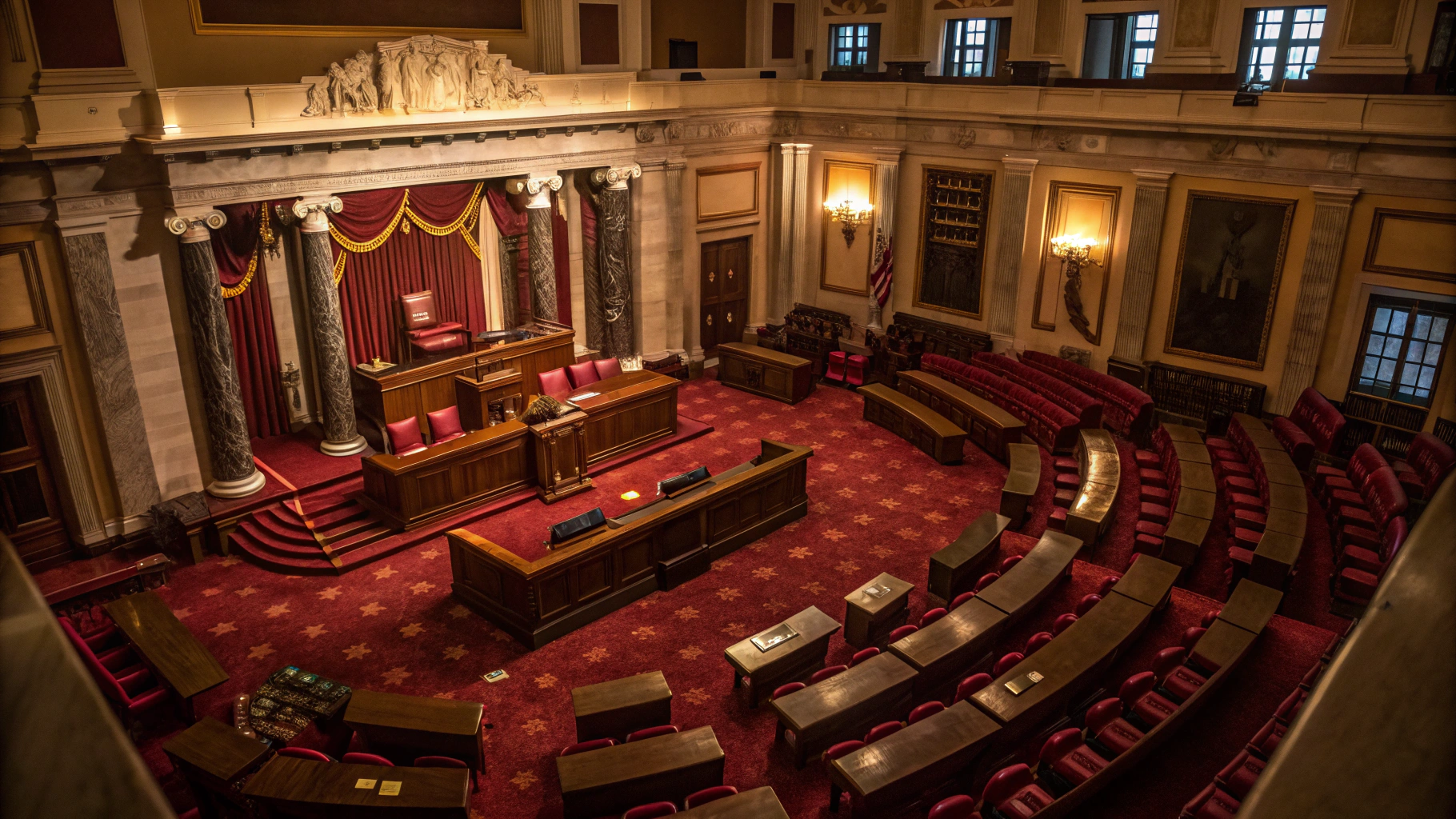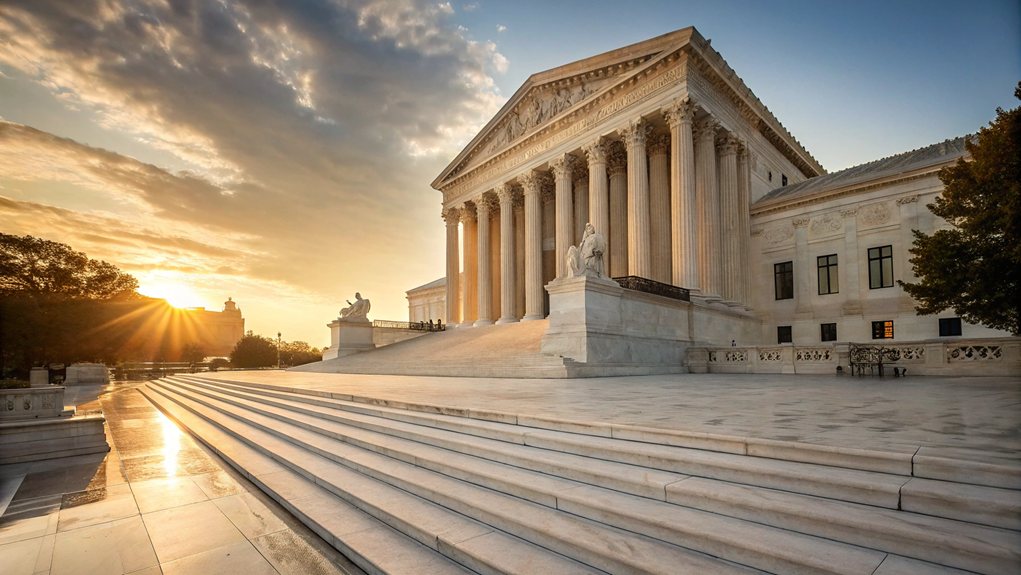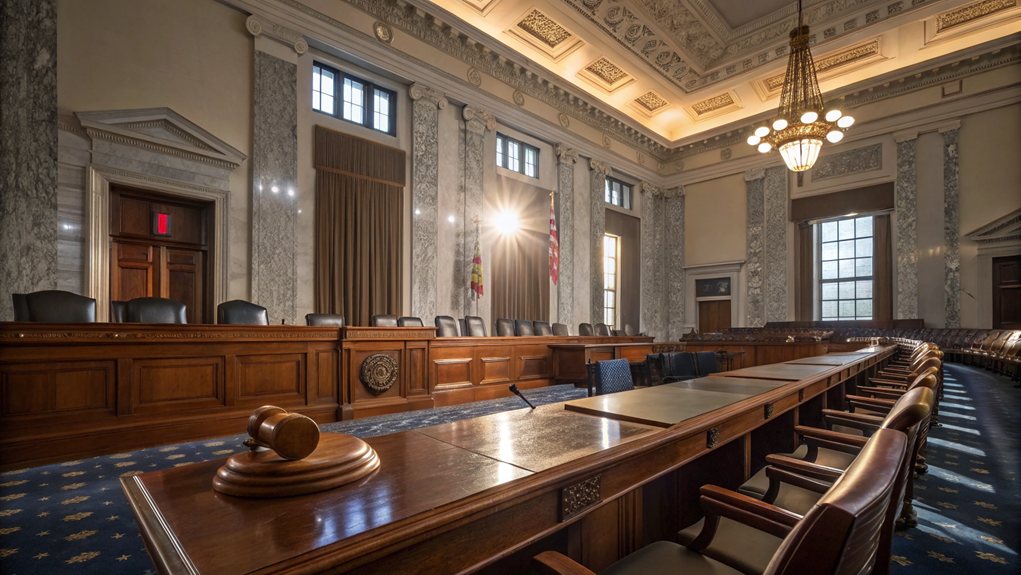Supreme Court justices are chosen through a political tango. It starts with the President nominating someone, then the Senate Judiciary Committee goes all detective mode to vet them. Hearings happen, drama unfolds, and the full Senate eventually votes. Once confirmed, justices have lifetime gigs – they can retire, but usually, they stick around until they can't. So yeah, they're mostly untouchable by political pressure. Curious about what this means for society? There's more to the story.

When it comes to selecting Supreme Court justices, the process is as complex as it is essential. It all starts with the President, who gets to play the role of matchmaker by nominating a candidate. But hold your horses! This isn't just a simple "pick and choose" scenario.
The nomination then gets tossed to the Senate Judiciary Committee, where things really heat up. They're the ones who conduct thorough background checks, digging into both public and private records. Yes, they even call in the FBI. Fun, right? The Senate Judiciary Committee plays a pivotal role as they investigate and assess the nominee's qualifications and suitability for the position.
Once the Committee has done their homework, they hold hearings. This is where the drama unfolds. Senators get to grill the nominee, asking tough questions about qualifications, legal philosophy, and maybe even their favorite pizza toppings. Witnesses, both cheerleaders and critics, testify. It's like a courtroom drama, but with less suspense and more political posturing.
After all the questioning, the Committee votes. They can recommend the nominee as favorable, unfavorable, or just sit on the fence with no recommendation. Whatever the outcome, it's not over yet. The full Senate gets involved next. They debate the nomination, and this is where things can get really messy.
Debate can be cut short with a simple majority vote—51 Senators can end the fun. Then comes the confirmation vote, which also requires a simple majority. If there's a tie, the Vice President steps in to break it. Talk about pressure!
Now, let's talk tenure. Supreme Court justices are appointed for life. Yep, you read that right—life. There's no expiration date. They can retire, sure, but many stick around until they can't anymore. This lifetime appointment ensures that justices can make decisions free from political pressure throughout their tenure, allowing them to serve a lifetime unless impeached, resign, or retire.
The impact of their decisions? Huge. They shape society, laws, and the overall vibe of the country. The whole process is a spectacle, drawing public attention and sometimes a whole lot of controversy. In short, picking justices is a big deal, and it's a wild ride.
Frequently Asked Questions
What Qualifications Are Required to Become a Supreme Court Justice?
To become a Supreme Court justice, there are no official qualifications. Seriously.
The Constitution doesn't say you need to be a specific age, citizen, or even a lawyer—though, spoiler alert, all justices have legal training.
Most have been lawyers or judges, and many come from fancy law schools like Harvard or Yale.
Can a Supreme Court Justice Be Removed From Office?
Yes, a Supreme Court Justice can be removed, but good luck with that.
It's a tough process. It starts in the House, where they need a majority to kick things off.
Then, the Senate steps in, and they require a two-thirds vote to actually boot someone out.
Spoiler alert: it's never happened.
It's like trying to get a cat to take a bath—messy and unlikely, and everyone's probably just going to roll their eyes.
How Often Do Supreme Court Justices Retire or Resign?
Supreme Court Justices? They don't resign often.
Retirement? That's the name of the game—about 80% of them exit that way. Most hang up their robes around age 69. And, hey, some even hit the 90s before calling it quits!
Resignation? Rare as a unicorn—only a couple in recent history. Usually, they just get tired or want to enjoy life outside the Court.
But, death in office? That's practically ancient history now.
What Role Does the Senate Play in the Selection Process?
The Senate plays a massive role in the Supreme Court selection process.
After the President makes a nomination, it's the Senate Judiciary Committee that steps in. They grill the nominee, gather opinions, and then vote. No pressure, right?
The full Senate debates next, and if they can't agree? Well, the Vice President might have to break the tie.
It's a big deal, and the outcome can tilt the Court's balance for years.
Are Supreme Court Justices Paid a Salary, and How Much Is It?
Supreme Court Justices definitely get a salary. In 2023, Associate Justices raked in $274,200, while the Chief Justice enjoyed a slightly fancier paycheck of $286,700. Not too shabby, right?
They even get annual raises, thanks to inflation. But hold on, they can also make some extra cash from teaching or book deals—up to $30,000 from teaching, to be exact.









